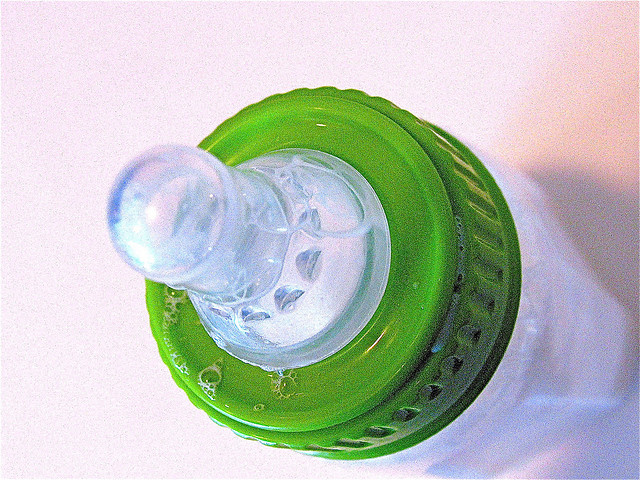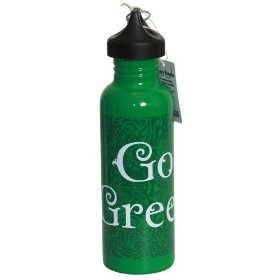A lot of information is floating around out there on the different types of plastics. Over the years we have learned that many plastics are known to be unsafe for use and that all plastics are a threat to our environment.
Recently the talk has been about dangers of the chemical bisphenol-A (BPA). BPA, a common component in clear plastics, has been found in our baby bottles, water bottles, food packaging, can linings and cash register receipts.
Most green enthusiasts (and even those that aren’t) have been diligently avoiding plastic containing bisphenol-A (BPA) for quite some time. BPA has been shown to leach into our foods and act as a hormone-disrupting synthetic estrogen, causing cancer, obesity, diabetes, early puberty and other health problems. As conscientious consumers, many of us sought out plastic containers wearing a sticker proclaiming the product was BPA free. By purchasing products labeled BPA free we thought we were safe.
Turns out we were wrong. BPA free might not be enough.
National Public Radio (NPR) aired a story on a study released from Georgetown University, PlastiPure, and CertiChem (a chemical testing company). In the study these companies tested more than 450 plastic products, including many labeled BPA free, and found that more than 90 percent of the plastics (even those that were BPA free) released chemicals that mimic estrogen (the same claims against BPA). They found that sometimes the BPA free products released chemicals having more estrogen activity than BPA-containing products.
Even though a product is considered BPA-free it could still be releasing high levels of other chemicals that mimic estrogen.
Not good.
What can we do?
Just say no to plastic.
Another study just released by the Breast Cancer Fund and Silent Spring Institute shows shows that we can reduce our BPA exposure significantly by cooking fresh foods at home, avoiding canned foods, choosing glass and stainless steel food and beverage containers, and not microwaving in plastic.
- When you are about to buy a plastic product ask yourself if you really need it.
- Don’t buy plastic water bottles-invest in a reusable stainless steel water bottle
.
- Start to phase out any plastics in your home-especially those that come in contact with food.
Get involved.
According to Safer Chemicals Healthy Families, there’s no way to completely avoid BPA until Congress passes the Safe Chemicals Act, which will require chemical manufacturers to show their products are safe before they end up in the things we buy. The chemical industry has acknowledged the need for federal reform of the chemical policy to restore public confidence in the safety of their products. Now they just need to do something about it. If you would like to help- check out the many ways to get involved.
Do you buy BPA free plastic? Does this study change the way you feel about plastic in general?
If this post helped you, please share it. And please grab our RSS feed or sign up for free e-mail updates to get more Groovy Green info hot off the press! Thanks!
[Top photo used under Creative Commons from Nerissa’s Ring/Flickr]
[Stainless steel water bottle photo used under Creative Commons from John Spencer/Flickr]
*If you purchase a water bottle through the Amazon link it will place a few pennies in my pocket. Thanks!


